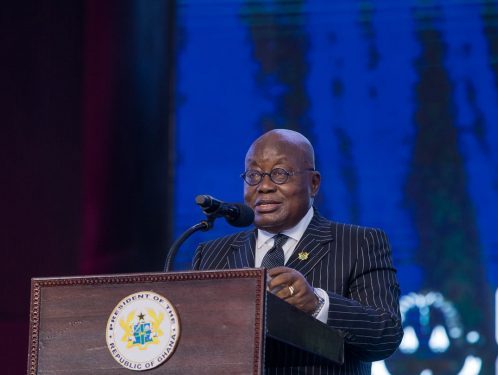DVLA boss in trouble with board members

The Herald, has picked up impeccable information on the Driver and Vehicle Licensing Authority (DVLA), indicating a frosty relationship between the Chief Executive Officer (CEO) and the board of directors led by Accra-based lawyer, Frank Davies, for running a one man show at the state institution.
Kwesi Agyeman Busia, is accused of taking certain management decisions with serious national security implications, without the approval of the Board.
The DVLA boss, also stands accused of chasing money and ignoring the legal and administrative framework regulating the operations of the authority he heads.
At the last board meeting on January 9, Mr Busia, was heavily reprimanded for embarking on a major project; the launching of a digitized DP Sticker numbering system at the country’s various ports of entry to replace the existing DP number plates in use, without the authorization of stakeholders.
He is also accused of ignoring the security implications that the non-use of the number plate pose to law enforcement and crime detection and prevention in the country.
The DP Sticker policy, The Herald was informed, had no approval from the Lawyer Frank Davies-led board, the Ministry of Transport led by Kweku Ofori Asiamah, as well as the Ghana Police Service’s Motor Traffic and Transport Department (MTTD).
The Herald’s checks, revealed that when the issue first came up at the Board meeting, Mr Busia, reportedly told the board that he went ahead to launch the stickers – which many have said can easily be faked with a simple computer and printing machine – after seeking a legal opinion from a lawyer friend of his.
This is said to have drawn venom from Lawyer Frank Davies and several other members of the board.
The DVLA boss is said to be the son of the NPP stalwart Madam Ama Busia, who has President Akufo-Addo’s ears, hence has attained a status of an untouchable within the government circles and does things without consultation and approval of his board.
Indeed, Commissioner of Police (COP) Christian TettehYohuno, who is the current Director-General of the police MTTD, was reported to have first kicked against the DP Sticker policy, however, the DVLA boss, went ahead and procured computers and printing machines to implement the policy, ignoring all the security concerns raised by the police; major stakeholders in the operation of driver and vehicle licensing in the country.
Aside the stickers being easy to fake as was the case with the Luxury Vehicles Tax stickers, the DP sticker policy, is against the second schedule of the Road Traffic (Amendment) regulations1995 Li 1605, which specifies features expected on vehicle’s number plate, and these are missing on the DP stickers.
The DP sticker policy, has also been found to have flouted Regulation 10 of the Road Traffic Regulation 2012, LI 2180.
But this is not the first time Mr Busia, had implemented a controversial programme placing the DVLA and the Akufo-Addo government in a bad light.
Not long ago, he authorized the sale of a First Aid Box in the name of the DVLA at an outrageous amount, thus opening up the Akufo-Addo government for a massive public backlash, until a directive was issued for the withdrawal of the policy.
The Herald is also informed that, Mr Busia, was the proponent of the controversial Luxury Vehicles Tax on cars with engine capacities of 2.9 litres and above and just like the First Aid Boxes in the cars, the Akufo-Addo government was eventually forced to scrap the controversial Luxury Vehicle Tax exactly a year after its introduction in response to opposition from several institutions, including the Car Rental Association of Ghana.
It was argued that between August and December 2018, only GH¢21.3million was realised from implementing the tax – far below the GH¢104million that was projected to be collected within the period.
Vehicles with engine capacities of between 2.9 – 3.5 litres attracted an annual tax of GH¢1,000; those with engine capacities of 3.6 – 4.0 litres paid GH¢1,500 annually; while 4.1 litre engine vehicles and above paid GH¢2000.
The DVLA had on Christmas day, announced the digitized smart DP Sticker, saying it was as part of the government paperless agenda at the various ports of entry to replace the existing DP plates in use.
The authority had hidden behind Vice President Dr. Mahamudu Bawumia’s digitization agenda for the Ghana economy, as crucial plank of the “Ghana Beyond Aid” agenda.
The DVLA boss believes that the introduction of the DP Sticker was in line with this agenda, and would help with further blocking of any revenue leakages associated with this essential service at the port.
The DLVA boss, also had described the sticker as environmentally friendly, with high security features, and can be validated easily by law enforcement agents and also, increases revenue assurance through high accountability.
The price of the new digitized DVLA DP sticker was same, as the number plate.
The Herald findings are that the issuance of the stickers flout the second schedule of the Road Traffic (Amendment) regulations1995 Li 1605 which states that “the identification mark registered in respect of a vehicle shall be embossed on the metal plate consisting of 99 percent aluminium and laid with 95 percent silver reflective sheeting or coating and of the thickness of 1 mm and hardness of temper 14(h14)”.
Additionally, regulation 10 of the Road Traffic Regulation 2012, LI 2180 states that “where a person registers a motor vehicle or trailer, the Licensing Authority shall assign an identification mark in respect of the motor vehicle or trailer, adding “the identification mark shall be carried by the motor vehicle on two plates which shall conform to the requirements of the second schedule”.
Strangely, the new stickers are only pasted in front of the cars and not behind them as with the aluminium number plate. It is also prone to falsification, leading to huge revenue loss for the state. It puts both drivers and law enforcement personnel in a state of confusion, as it is easy to be employed by criminal elements in their activities.
The argument from the DVLA, has been that some vehicle owners have complained that the number plates scratches the bodies of their cars while driving out the port to their various destinations.
But the rebuttal has been that prior to departure from the port, the user of the vehicle is by law supposed to fix the plate on the vehicle and not to hang it to dangle. The owner takes insurance cover before leaving the port. The insurance covers death, injury and property damaged. This means that every vehicle that leaves port of entry to the roads in the country is properly insured and the scratches can be repaired on the insurance.
Source: theheraldghana.com





